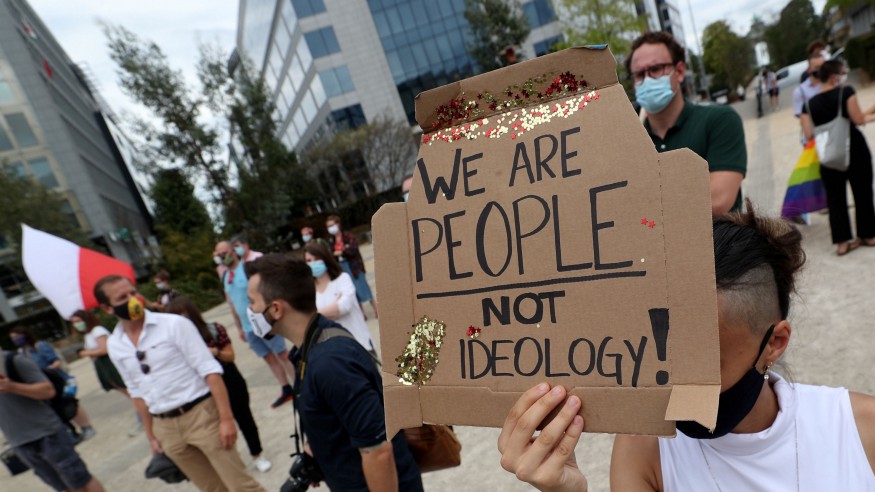Poland’s Anti-LGBT Hate Timeline

Over the past number of years, LGBTI people have come under increasing attack from ruling politicians, religious leaders and other public figures in Poland. This has come in the form of dangerous and false framing of LGBTI people as a threat to children, and as a threat to Christianity.
We have created and will be updating this abbreviated timeline of what’s been happening over the past two years with the rise of official homophobia and transphobia.
Position on combating homophobic and transphobic speech and prohibiting incitement to discrimination, hostility or violence
ILGA-Europe’s position is based on international human rights standards. It respects the principle of indivisibility of human rights and establishes no hierarchy between rights and freedoms, including freedom of thought, conscience and religion. It can by no means be understood as an attempt to limit the expression of different opinions in the frame of legitimate political debates relating to the rights of LGBTI people.
General principles
- ILGA-Europe calls on public authorities to adopt comprehensive strategies to combat prejudice and to promote dialogue, education and mutual respect to achieve full inclusion of lesbian, gay, bisexual, trans and intersex (LGBTI) people in a society free from intolerance.
- ILGA-Europe believes that public authorities must guarantee LGBTI people’s freedom of expression, a necessary condition to combat intolerance, prejudice and incitement.
Comprehensive action against prejudice
- ILGA-Europe calls on governments, legislatures, independent equality bodies and other public authorities to implement sound anti-discrimination and awareness raising policies in their respective remit. This includes mechanisms to tackle and react to manifestations of intolerance and prejudice in all relevant sectors.
- The area of education is a priority in that respect. Another priority is the professional training of all relevant public sector professionals. Public information campaigns are equally necessary, particularly in areas such as intolerance on-line or in sports.
- The media and their professional organisations should be encouraged to develop and respect codes of conduct reflecting equality principles and to provide specific training to their staff, including on issues related to sexual orientation, gender identity and gender expression.
- All relevant stakeholders should cooperate with civil society organisations, including community-based organisations, in order to build on their expertise.
Prohibition of incitement to discrimination, hostility and violence
- ILGA-Europe calls on legislators to prohibit incitement to discrimination, hostility and violence on all grounds, including sexual orientation, gender identity and gender expression, in the respect of international human rights standards (UDHR, ICCPR, ECHR). Victims should be provided with a range of appropriate remedies, including civil law redress mechanisms and the right to reply.
- Prohibition of incitement must always be provided by law, be necessary and proportional to its objective. Relevant prohibiting provisions should be consistent with anti-discrimination and criminal legislation. They should not create penalties that would be more severe than the sanctions applicable to cases of actual discrimination, hostility and violence.
- Legislation should define clear guidelines for Courts to assess all incitement cases in a coherent way, on the basis of well-defined criteria.